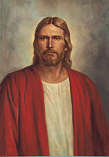
FAIR is a non-profit organization dedicated to providing well-documented answers to criticisms of the doctrine, practice, and history of The Church of Jesus Christ of Latter-day Saints.
mNo edit summary |
mNo edit summary |
||
| Line 259: | Line 259: | ||
}} | }} | ||
=== === | |||
{{FAQ | {{FAQ | ||
|q=Are those charged in a disciplinary council allowed to defend themselves? | |q=Are disciplinary councils like adversarial court rooms? | ||
|a=Yes. Members subject to potential Church discipline may present evidence, call witnesses, or provide written testimony. In many disciplinary councils, the member has confessed to transgression, and so there is little need for witnesses or fact-finding, since the member voluntarily discloses the nature and severity of his or her misdeeds. | |a=No. Councils should function in an atmosphere of mutual respect and concern for the well-being of the member. The presiding officer or other members of the council may ask questions in a respectful manner. Unlike civils courts, is no mechanism in place to compel or require a member to answer a question. | ||
|quote= | |||
|link= | |||
|subject= | |||
|summary= | |||
|tag= | |||
|link2= | |||
|subject2= | |||
|summary2= | |||
|tag2= | |||
}} | |||
{{FAQ | |||
|q=Are those charged in a disciplinary council allowed to defend or explain themselves? | |||
|a=Yes. Members subject to potential Church discipline may present evidence, call witnesses, or provide written testimony. They are also permitted to question any witnesses who testify against them. | |||
(In many disciplinary councils, the member has confessed to transgression, and so there is little need for witnesses or fact-finding, since the member voluntarily discloses the nature and severity of his or her misdeeds.) | |||
|quote= | |quote= | ||
|link= | |link= | ||
| Answers portal |
| Mormon FAQ |

|
 Frequently Asked Questions about Church Disciplinary Councils
Frequently Asked Questions about Church Disciplinary CouncilsIf you have a question about the whys, hows, or wherefores of Church Discipline in the Church of Jesus Christ of Latter-day Saints, our FAQ has the answer.
Whenever this [stake high] council convenes to act upon any case, the twelve councilors shall consider whether it is a difficult one or not; if it is not, two only of the councilors shall speak upon it....But if it is thought to be difficult, four shall be appointed; and if more difficult, six; but in no case shall more than six be appointed to speak. The accused, in all cases, has a right to one–half of the council, to prevent insult or injustice. And the councilors appointed to speak before the council are to present the case, after the evidence is examined, in its true light before the council; and every man is to speak according to equity and justice. Those councilors who draw even numbers, that is, 2, 4, 6, 8, 10, and 12, are the individuals who are to stand up in behalf of the accused, and prevent insult and injustice.
|

FAIR is a non-profit organization dedicated to providing well-documented answers to criticisms of the doctrine, practice, and history of The Church of Jesus Christ of Latter-day Saints.
We are a volunteer organization. We invite you to give back.
Donate Now